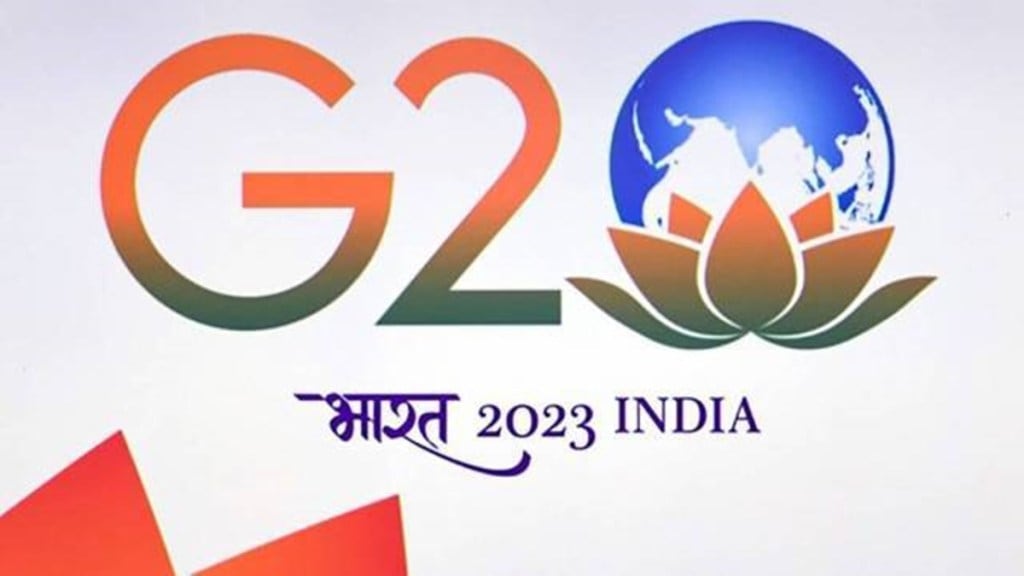By Atul Kumar Tiwari
G20 summits over the years have made notable commitments related to skills. India has taken over the G20 presidency at a time when there is a global skilling crisis due to countervailing forces of de-globalisation. Tech advancement, energy transition and demographic change have led to a societal problem of equipping people with the skills they need to participate gainfully in the global economy.
The World Economic Forum’s ‘Future of Jobs Report 2020’ estimated that 85 million jobs may be displaced and 97 million new roles may emerge due to a shift in the division of labour between humans, machines and algorithms. A study by Korn Ferry estimates that by 2030 there will be a global talent shortage of over 85 million, equivalent to the population of Germany. A global skills partnership to address these challenges can address this issue.
Also read: MUDRA loans at an all-time high
We can arrive at G20-wide agreements that can offer solutions to the skill challenges faced by this collective. There is an in-principle agreement on the need of coming up with a common framework of skilling across the G20. The energy and spirit of the discussions at the first Employment Working Group (EWG) of the G20 in Jodhpur gives me hope that groundbreaking work in skill partnership may be achieved during the year. The contours of this partnership require action on four key areas:
—First is the framework towards a unified G20 skill taxonomy. A recent ILO and OECD technical paper articulates the need to enable G20 countries to communicate with one another using a common language with respect to skills. For this, we have to develop global skills taxonomy to capture skills and competencies, and be flexible enough to capture the varied realities across countries. This will trigger hiring based on skills-acquisition rather than on factors such as networks and access to recognised institutions. It will lead to simplified understanding of the skill challenges across the G20 and enable cross-country solutions. The strengths of one country in terms of surplus skills can be leveraged by another G20 country.
—Second, using this common skill taxonomy, a G20-wide skill gap study can be conducted for evidence-based skilling strategies. Almost all countries conduct their own versions of labour market and skill gap studies. But there is a significant variation in indicators, granularity, frequency and availability of such skill gap data used for formulating skill policy. There is an opportunity to agree on the indicators, their scope and frequency among the G20 for enabling conduct of commonly understood skill gap studies. Such studies will place the transnational demand-supply of skills in perspective. ILO and OECD with the help of India’s G20 nodal ministries can handhold this exercise until it is institutionalised across G20 countries.
Also read: Most CTUs plan to stay away from the Labour 20 meeting
—Third, to handhold the skill gap studies and common taxonomies, the G20 may adopt a suite of digital public goods and services and develop a digital platform for housing skill gaps, job aggregation, curated learning pathways, etc. As the current president, India may offer to house this collaborative initiative and offer required capacity and resources for institutionalising this platform.
—Finally, there is a need for harmonisation of Qualifications and Qualifications Framework across the G20 for all the above to function seamlessly. This will involve developing common referencing mechanisms to promote mutual understanding of skill levels and outcome descriptors. The EU’s Europass initiative offers data on qualifications, referencing with national qualification systems, learning opportunities and pathways. The ASEAN framework for Mutual Recognition Arrangements (MRA) can also be a good reference point. Such G20-wide recognition arrangements can enable bilateral G2G and technical bodies equivalence agreements to facilitate skill-based mobility and enhanced trade in services.
To conclude, the G20 members represent 85% of global GDP, over 75% of global trade, and about two-thirds of global population. G20 partnership in the above-mentioned areas will help strengthen the national skills systems, thereby enhancing economic productivity, social equity and sustainable development. A reimagined skill partnership under the Indian presidency will unlock the potential of a win-win skill partnership for both developed and developing countries in the grouping which face contrasting demographic challenges.
The author is secretary, Ministry of Skill Development and Entrepreneurship. Views are personal

